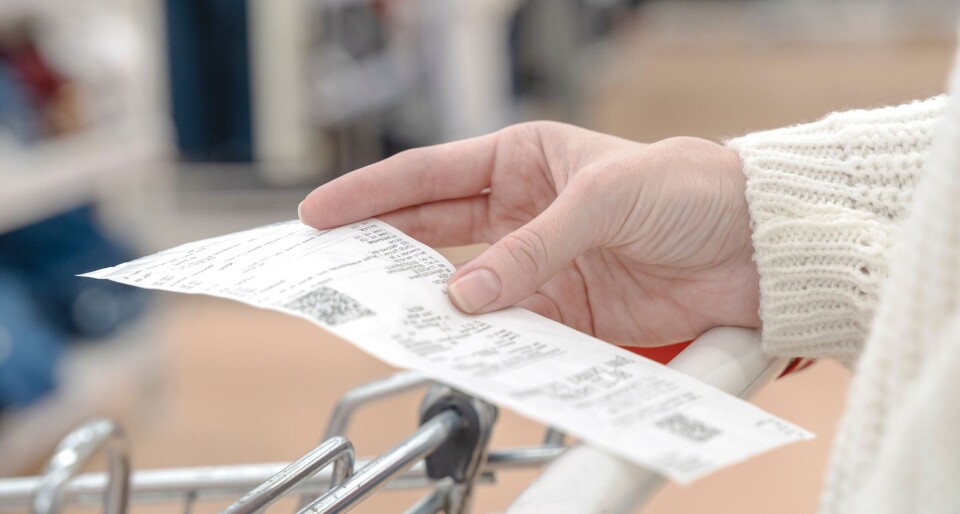-
How many Americans live in Paris - and where else are they choosing in France?
Over a quarter of all US nationals in France live in the capital city
-
Price rises for Netflix in France
The Standard (with ads) and Premium packages are increasing by €24 a year
-
Leclerc supermarkets to sell car fuel at cost price for Easter
The initiative will apply to diesel, petrol, and LPG
In which cases will shoppers still be given paper receipts in France?
Shops no longer have to automatically print receipts - but there are some exceptions

From August, consumers will no longer be automatically given a paper receipt in French shops in a bid to cut down on paper wastage.
What is changing and why?
As of today (August 1), paper receipts will no longer be automatically printed:
-
In shops
-
When a purchase is made by bank card
-
When buying something from a vending machine or withdrawing money from an ATM
-
When a customer gets a voucher or coupon.
The aim is to reduce the environmental impact of paper receipts in France. Every year some 30 billion till and bank receipts and paper vouchers are printed in France, according to the Economy Ministry, a colossal waste in terms of trees cut down and water used in manufacturing.
The change was due to be introduced first in January and then in April but was pushed back on both occasions.
Read more: Two key changes coming in France from August 1, 2023
Will electronic receipts be offered instead?
When this measure was first proposed, it was stated that many shops were expected to offer receipts by electronic means, such as email or text.
However, the final law does not impose any requirement to volunteer this, or to have the option at all, though shops that are set up with the technology to do so may offer it if they wish.
As this requires you to supply contact details, regulations on confidentiality for personal data apply.
Exceptions
Firstly, shoppers can still ask for a paper receipt when buying something, regardless of the amount or the item purchased.
Shops are also required to have a sign near the checkout stating paper receipts will not be given automatically but that customers can ask for one.
There are also several situations in which the customer must automatically be given a paper receipt:
-
For ‘durable goods’ where the receipt acts as the guarantee, such as electronic devices, cameras, games and toys, sporting goods, watches, lights, sunglasses and furniture
-
In shops where you pay for an item and then take a receipt to a counter to collect it
-
In hotels and restaurants
-
When buying a service, for example going to the hairdresser
-
When a payment is cancelled or does not go through – for example, if a card does not work
-
When a card transaction requires the business to credit money back to the client such as when reimbursing someone who has returned an item bought with a card
As mentioned above, customers will have the option in some shops to be sent an e-receipt (digital receipt), via text, email, or by scanning a QR code.
Some shops, such as supermarkets, also have phone applications which will automatically save your receipts if you scan your store card before a purchase.
Customer rights
There have been worries that the disappearance of automatic paper receipts could cause problems for customer rights.
Notably, if you want to make use of the legal ‘guarantee of conformity’ because an item is faulty, it could be more complicated to prove what you paid, and when, if you have no receipt, whether paper or otherwise.
Options include going through your bank statements, or phone apps (see above), or asking the shop to search its records. The latter is likely to be easier if you bought using a loyalty card.
However, state consumer information service the Institut national de la consommation recommends asking for a receipt systematically for anything where you may want to exchange the item or make use of a guarantee.
That includes items such as clothes and shoes which are not covered by the ongoing obligation for shops to give a receipt.
Consumer group UFC Que Choisir has also noted that a receipt can be useful where you choose an item from the shelves because it was stated to be sold at a reduced price, to check this was correctly applied.
Another association, Familles Rurales, has stated that e-receipts are not the solution for everyone, as millions of people have no computer or smartphone.
If you have a problem relating to your customer rights you can report it to the official anti-fraud and consumer rights body DGCCRF using its Signal Conso website or app.
Related Articles
There is now a new way of reporting scams and fraud in France
How does France’s consumer complaint service SignalConso work?
























